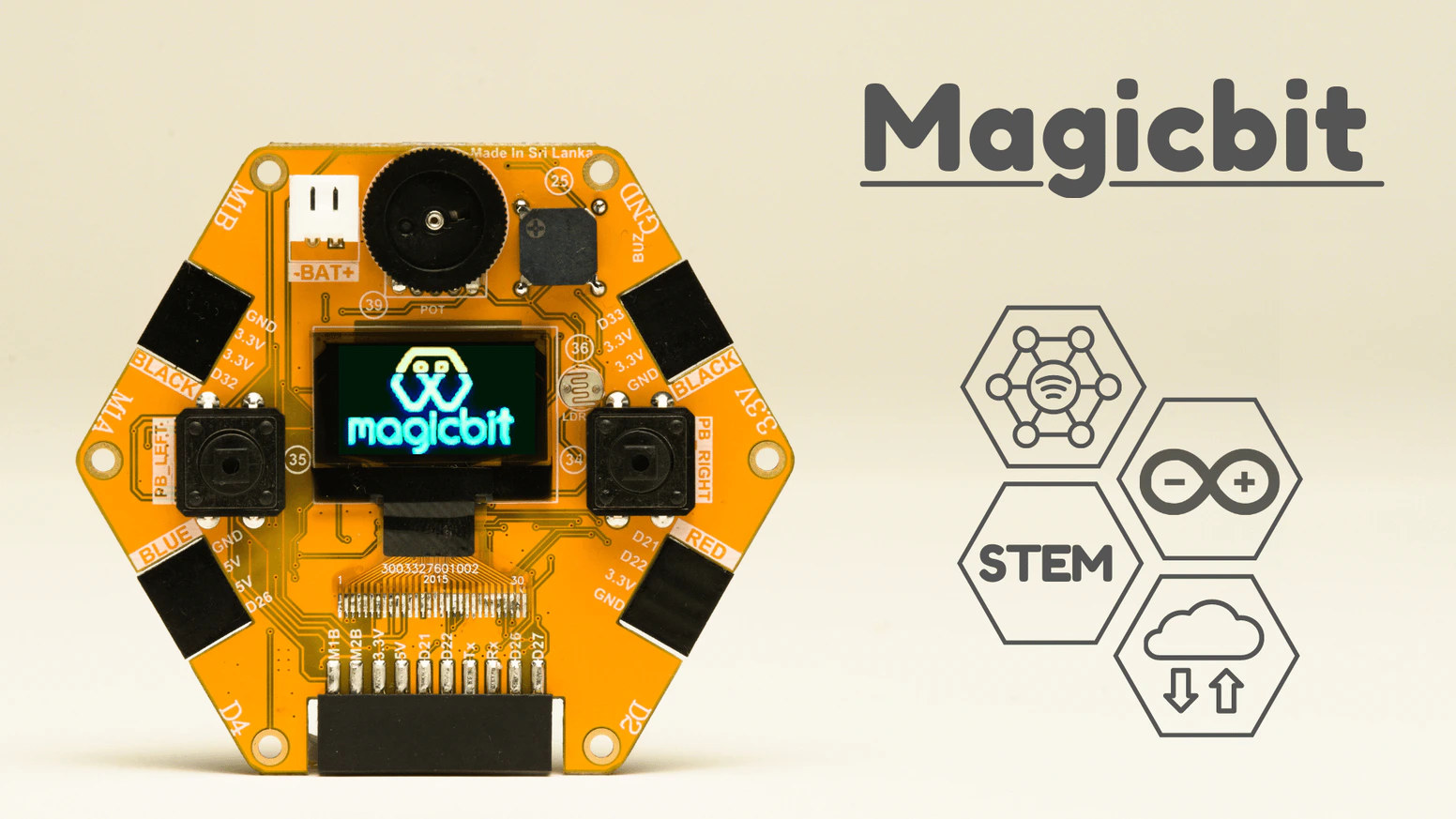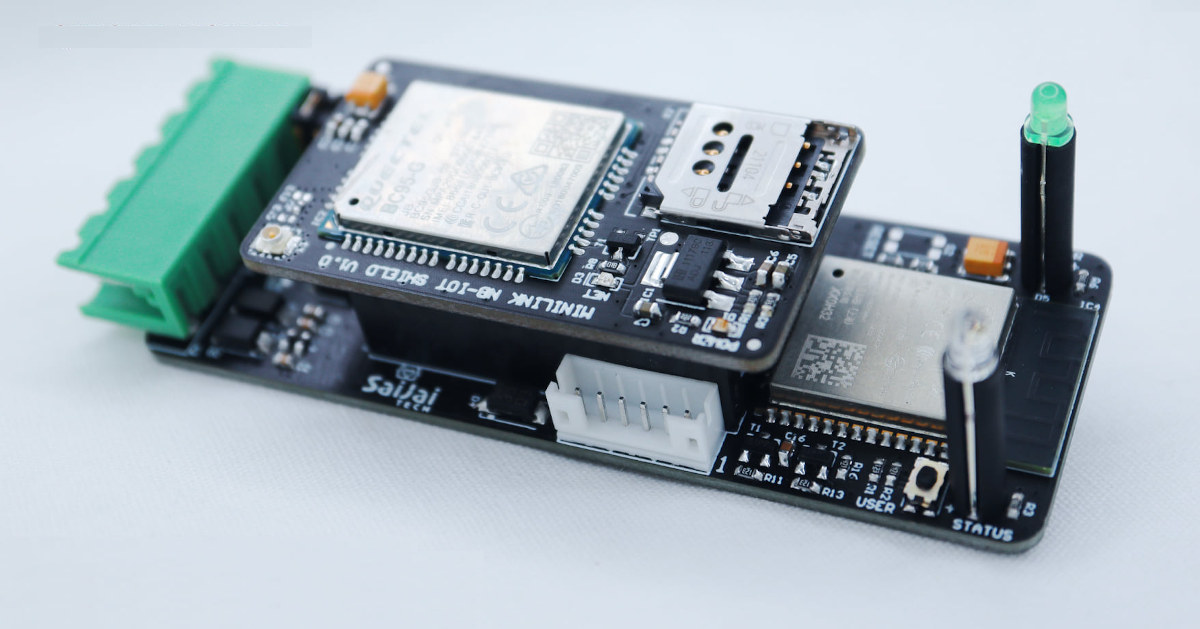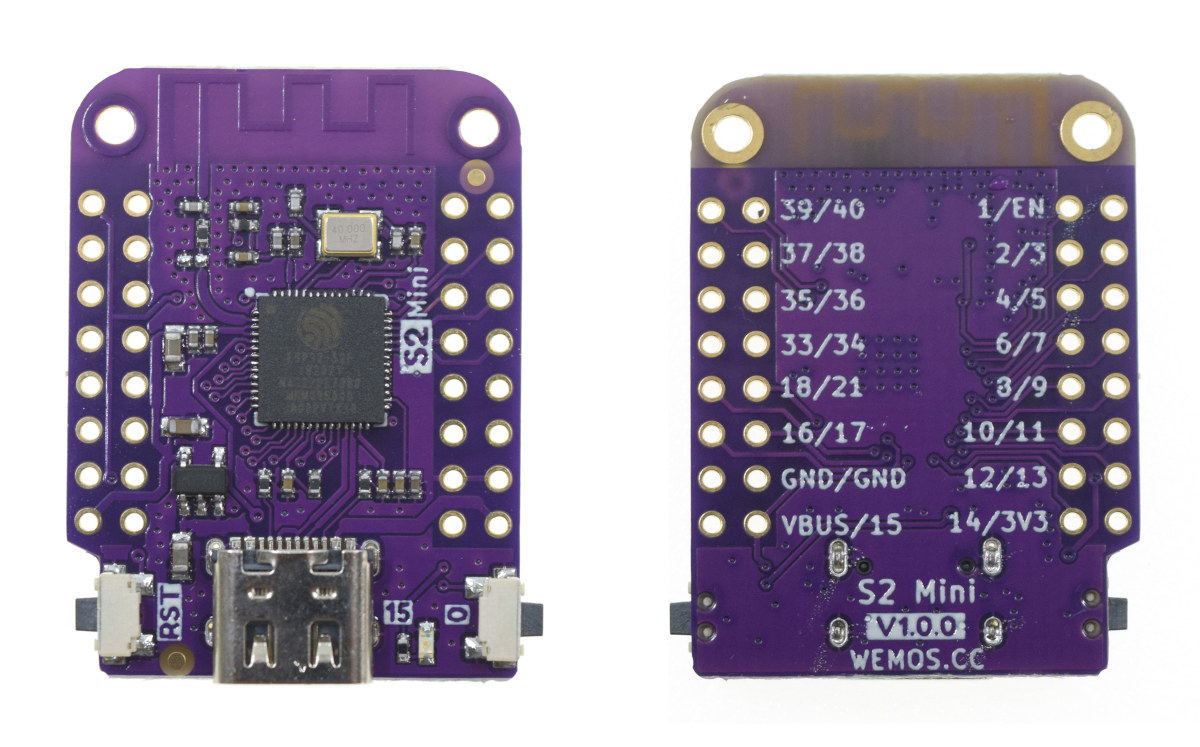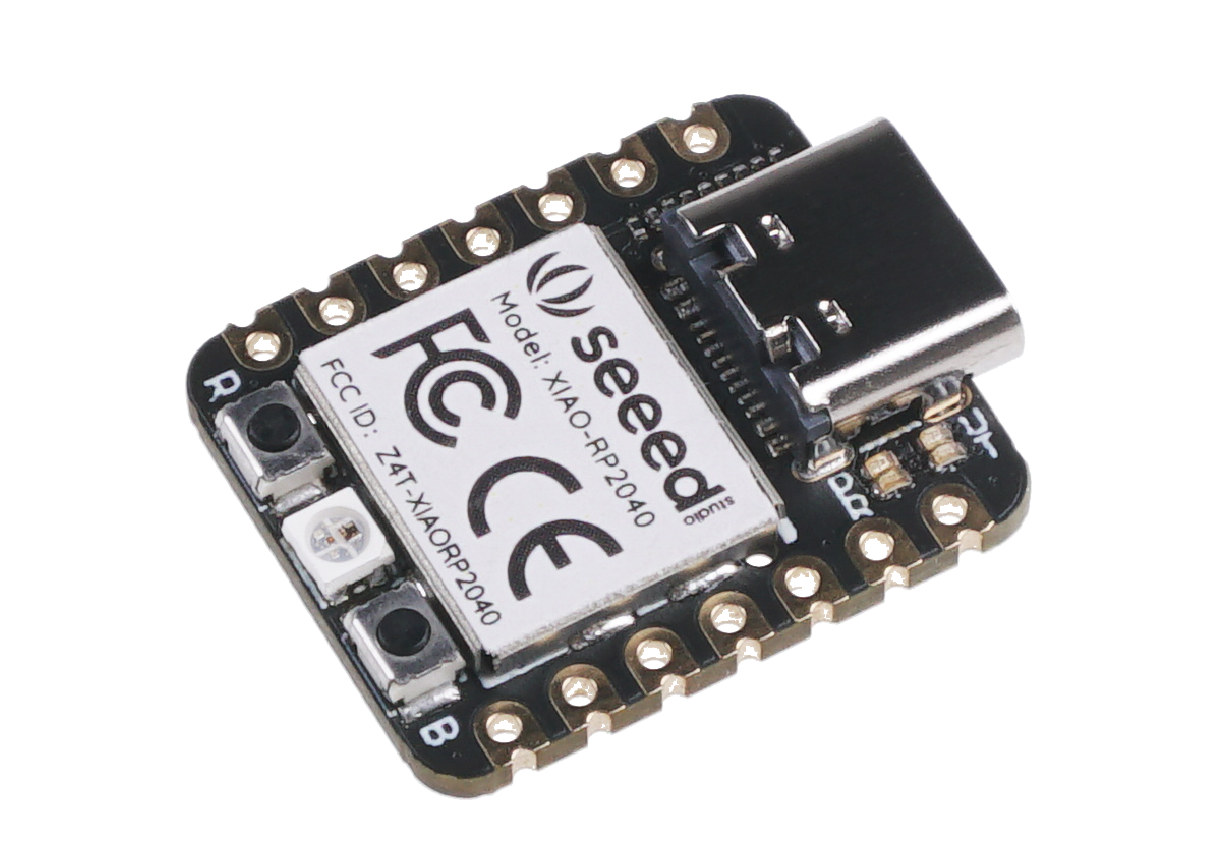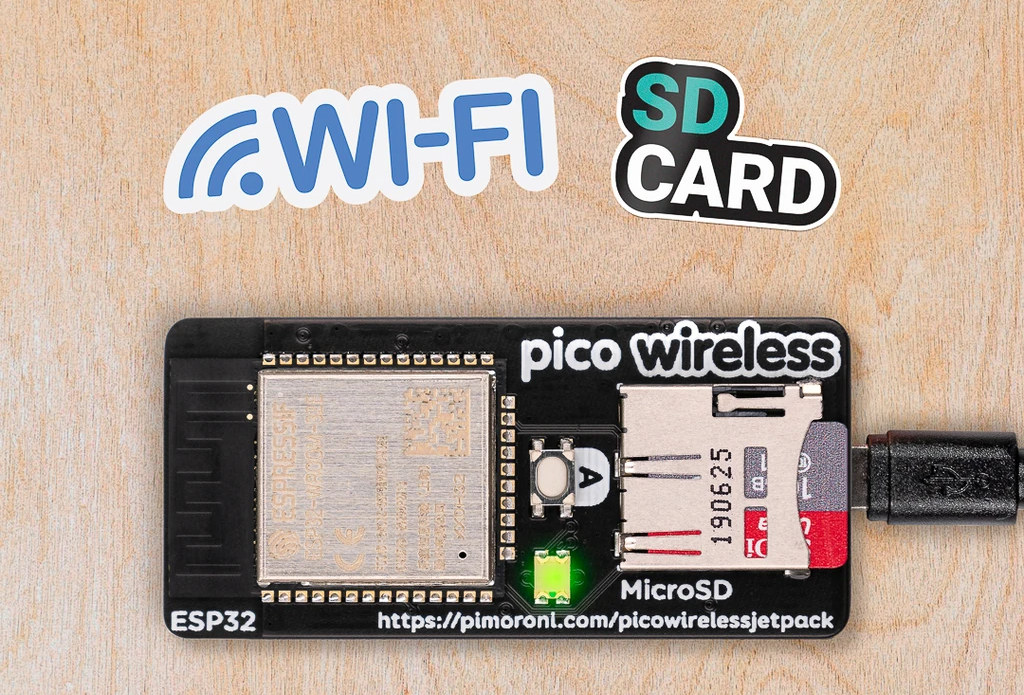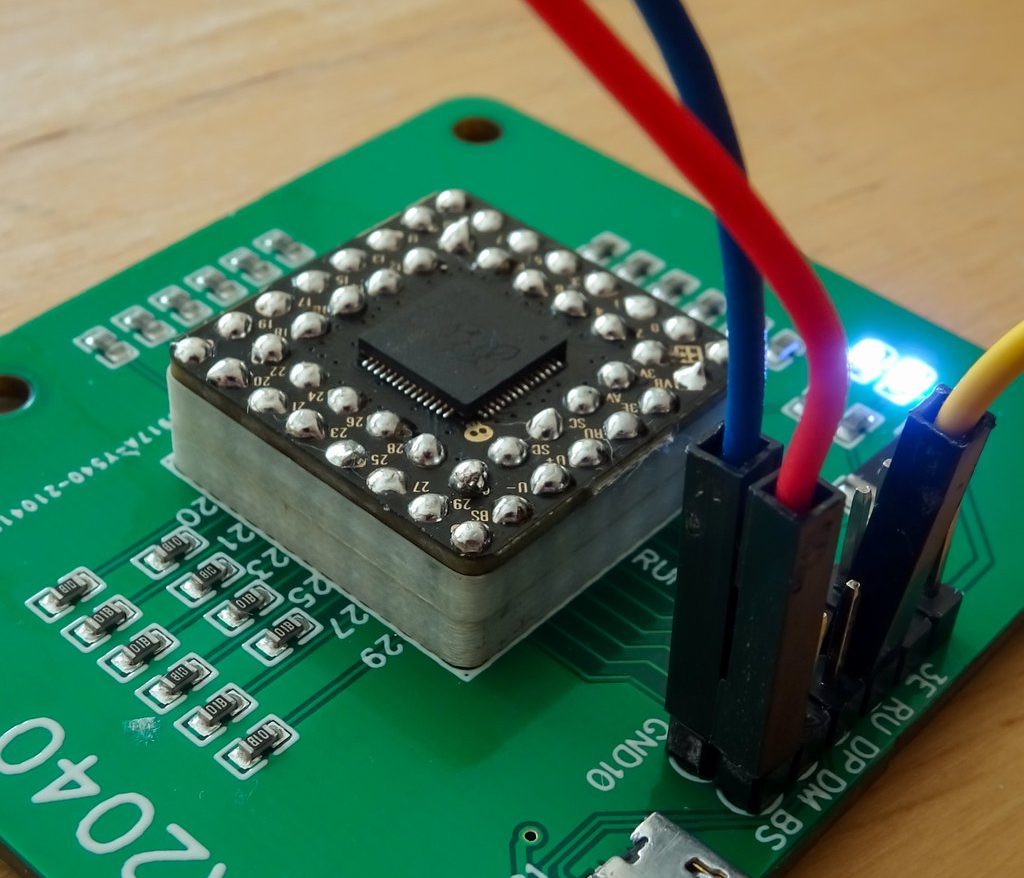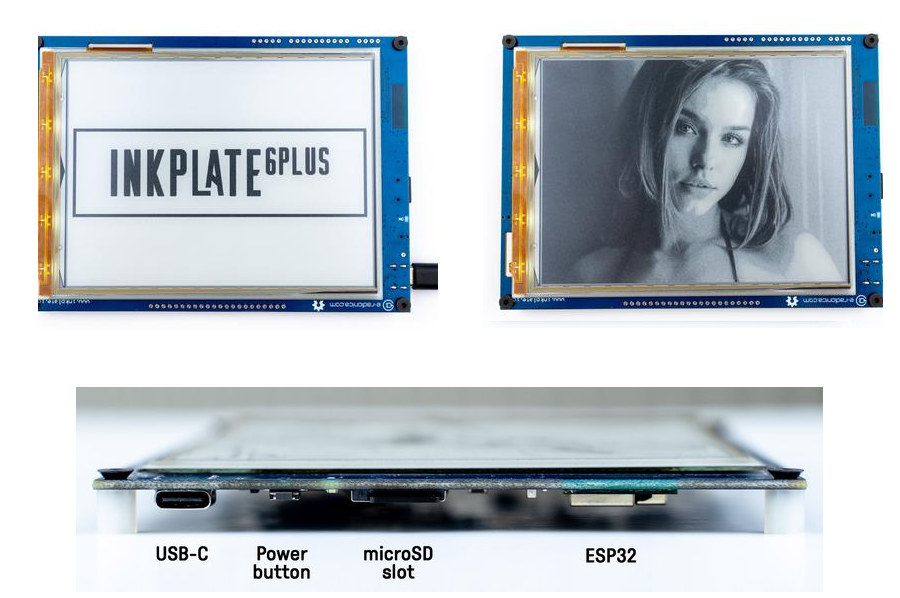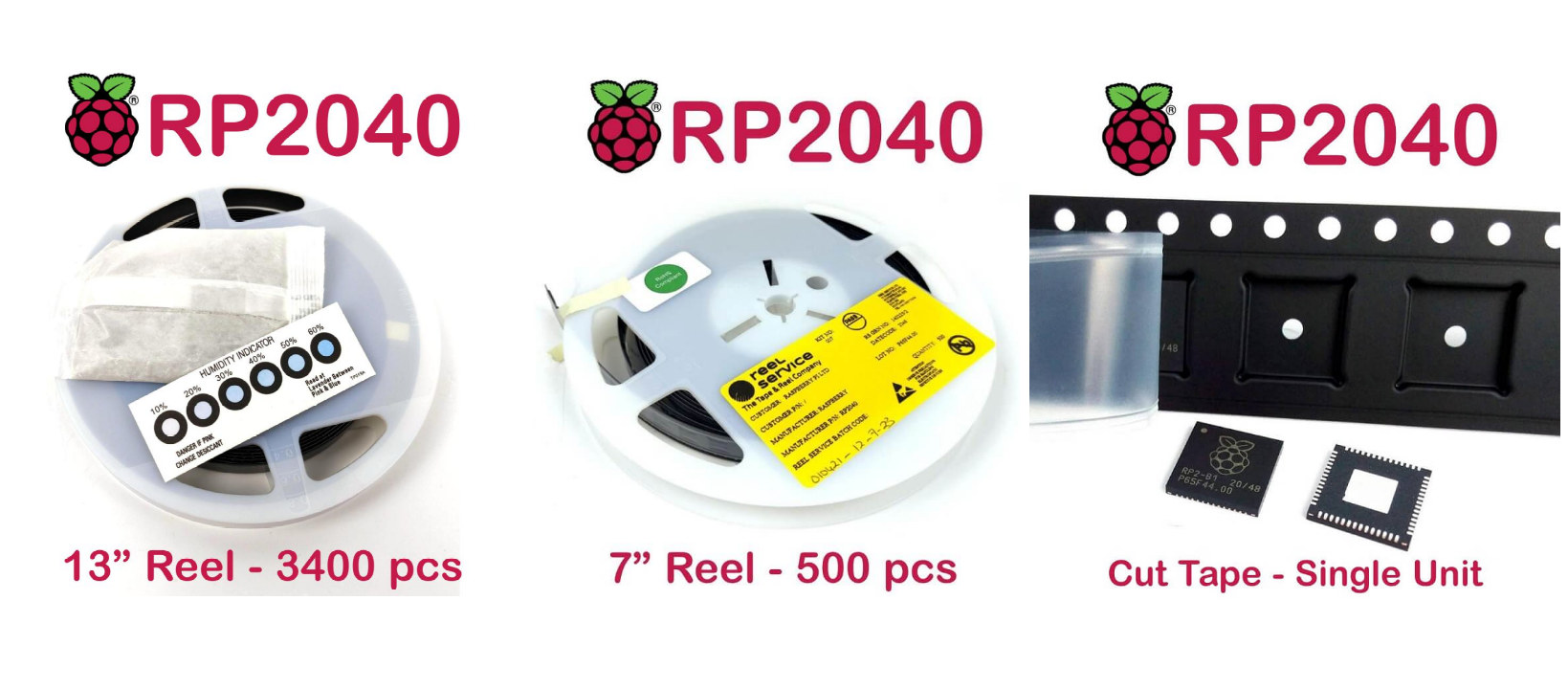Magicbit board joins other ESP32 platforms for the STEM education market such as the Crowbits Master Kit or ESP32-based Micro:bit clones with visual programming and Arduino and/or MicroPython support, a mobile app, and training materials such as project tutorials and online courses. Magicbit is designed to be wire-free with the hexagonal board offering four module’s connectors, an OLED display, buttons, a buzzer, and more. You can still use cables if you’d like with six crocodile clip holes and an expansion connector. Magicbit hardware specifications: Wireless module based on ESP32 dual-core processor @ 240 MHz with 520kB RAM and 2.4 GHz WiFi & Bluetooth 4.2/5.x LE connectivity, plus 4MB flash storage Display – OLED display Audio – Buzzer USB – 1x Micro USB port for power and programming Expansion 4x module expansions Motor driver Misc – Reset button, 2x user buttons, potentiometer, light sensor, LEDs Power Supply – 5V via MicroUSB […]
MiniLink IIoT Node – An Arduino compatible RS485 to LoRaWAN node with wireless expansion
Designed by Thailand-based Saijai Tech, MiniLink IIoT Node is an Arduino compatible board based on either an ESP32 WiFi & Bluetooth SoC or an unnamed Microchip Cortex-M0+ microcontroller designed for Smart Agriculture or industrial applications (e.g. PLC controllers). The board includes an RS485 interface for sensors or actuators, an ACER-branded LoRa module, and expansion headers to add an extra wireless module with either LoRa PtP (P2P, Point-to-Point), NB-IoT, or 3G/4G LTE & GNSS, and some of those add an extra RS485 port. MiniLink IIoT node key features & specifications: MCU (one or the other) Espressif ESP32 dual-core processor with 2.4 GHz WiFi and Bluetooth LE Microchip Arm Cortex-M0+ microcontroller (probably SAMD21) LPWAN – ACER AS923 LoRaWAN module Sensor interface – RS485 or UART via terminal block (jumper selectable) Expansion – 2x 14-pin header for expansion modules Misc – User & reset buttons, RS485/UART selection jumpers, user and power LEDs, USB/TTL […]
$4 Lolin S2 Mini ESP32-S2 WiFi IoT board works with Wemos D1 Mini shields
If you liked Wemos D1 mini ESP8266 board with stackable add-on boards, you’ll probably love Wemos/Lolin S2 Mini board with the same factor, but fitted with an ESP32-S2 single-core WIFi processor, and offering twice the number of I/Os. The board comes with 4MB flash, 2MB PSRAM, a USB-C port for power and programming, as well as two 16 pin headers for GPIOs, ADC, DAC, and more. Lolin S2 Mini V1.0.0 specifications: SoC – Espressif Systems ESP32-S2FN4R2 Xtensa single-core 32-bit LX7 microprocessor up to 240 MHz with 320 KB SRAM, 4MB Flash, 2MB PSRAM Expansion headers – 2x 16-pin headers with 27x IO, ADC, DAC, I2C, SPI, UART, USB OTG USB – 1x Type-C USB for 5V power and programming Misc – Reset button and button 0 also used to enter Device Firmware Upgrade (DFU) Dimensions – 34.3 x 25.4 mm Weight – 2.4 grams The board is compatible with Lolin/Wemos […]
Tiny Seeeduino XIAO board gets Raspberry Pi RP2040 MCU
Seeeduino XIAO is a tiny Arduino Zero compatible board with battery support that was launched last year with Microchip SAMD21G18 ARM Cortex-M0+ microcontroller at up to 48MHz. Seeed Studio has now launched the XIAO RP2040 board with the same form factor but upgrading to a more powerful Raspberry Pi RP2040 dual-core Cortex-M0+ microcontroller clocked at up to 133 MHz. XIAO RP2040 specifications: MCU – Raspberry Pi RP2040 dual-core Cortex M0+ up to 133 MHz, or even 252 MHz (48MHz default) with 264 kB SRAM Storage – 2MB SPI flash USB – 1x USB type C port for power and programming Expansion I/Os 2x 7-pin headers with 11x 4x analog inputs, 11x digital I/Os / PWM, 1x DAC, SPI, UART, and I2C; 2.54mm pitch 3.3V I/O voltage (not 5V tolerant) Misc – 1x user LED, power LED, 2x LEDs for serial port downloading, Reset Button/ Boot Button, RGB LED, SWD pads […]
Pico Wireless Pack adds ESP32 WiFi & Bluetooth module to Raspberry Pi Pico
Pimoroni Pico Wireless Pack is an add-on board for Raspberry Pi Pico adding a MicroSD card socket and ESP32 WiFi & Bluetooth module to the popular MCU board. While it’s a nice idea to add wireless connectivity to Raspberry Pi Pico, ESP32 is a dual-core Xtensa LX6 processor clocked at 160 to 240 MHz with WiFi, Bluetooth, and plenty of I/Os that should be able to handle most tasks better than Raspberry Pi RP2040 dual-core Cortex-M0+ processor clocked at 48 MHz by default, although we’ve also seen it overclocked up to 252 MHz. It comes with female headers that allow it to be inserted directly to the back of Raspberry Pi Pico has shown above, or into a “GPIO expander” board like the Pico Omnibus shown below through an SPI interface. Pico Wireless Pack specifications: Wireless module – ESP32-WROOM-32E WiFi 4 & Bluetooth 4.2/5.x module with PCB antenna, 4 MB […]
PGA2040 is a Compact Raspberry Pi RP2040 Breakout Board by Pimoroni
Pimoroni is known for its development boards with a small form factor. PGA2040 is another compact breakout board featuring the Raspberry Pi RP2040 microcontroller. The board comes in the form of a Pin Grid Array (PGA) with RP2040 at its center. The PGA allows the accommodation of 48 pins around the perimeter of SoC on such a small footprint. After seeing some of the advanced RP2040 boards featuring wireless functionalities in the past few months, such as the Arduino Nano RP2040 Connect board, Pico Wireless Carrier board, and Wio RP2040 Mini development board, the PGA2040 is a simple board with only necessary components, thus making it suitable for compact, simple applications. However, this increases the complexity and efforts from users for interfacing additional components to implement advanced applications. Talking more about the necessary components on the board, it comes with a Crystal Oscillator, 8MB of QSPI flash, and a 3V3 […]
Inkplate 6PLUS ESP32 ePaper display gets higher resolution, a touchscreen, a frontlight (Crowdfunding)
Inkplate 6PLUS is an updated version of Inkplate 6 ESP32 powered 6-inch ePaper display that was introduced in 2019, wand comes with a higher 1024 x 758 resolution, and the addition of a touchscreen and a frontlight. Just like the original product, Inkplate 6PLUS makes use of recycled e-paper displays without thousands of screens currently in stock. Refresh performance per pixel is faster and similar to Inkplate 10, which leads to a complete screen refresh being about as fast as on the original Inkplate 6 despite the higher resolution. Inkplate 6PLUS specifications: Wireless module – ESP32 WROVER module with dual-core ESP32 processor with Wi-Fi 4 & Bluetooth 4.0 (BLE) connectivity, 8MB PSRAM, 4MB flash External storage – MicroSD card socket Display – 6-inch, 1024 x 758 e-paper display with support for grayscale, partial updates, and quick refresh cycles 1.27 second refresh time in black & white mode 1.52 second refresh […]
You can now buy Raspberry Pi RP2040 MCU for one dollar
Raspberry Pi RP2040 microcontroller is not exactly new, as it was introduced with Raspberry Pi Pico board last January. But until now, you had to get samples from the Raspberry Pi Foundation due to limited supplies. What has changed today is that you can more easily buy Raspberry Pi RP2040 MCU for one dollar either in single quantity or reels with the following pricing: Reel/Tape with 3400 pcs for $3400 US Reel/Tape with 500 pcs for $500.00 US Raspberry Pi RP2040 cut tape (single unit): $1.00 US The math geniuses among us will have quickly figured out there isn’t any volume discount, so it’s one dollar per chip whether you buy one or thousands. [Update: See comment from Raspberry Pi Foundation below explaining pricing for reels is still to be determined] That’s about all there’s new. If you have not quite followed recent Pico news, here’s a summary of Raspberry […]


